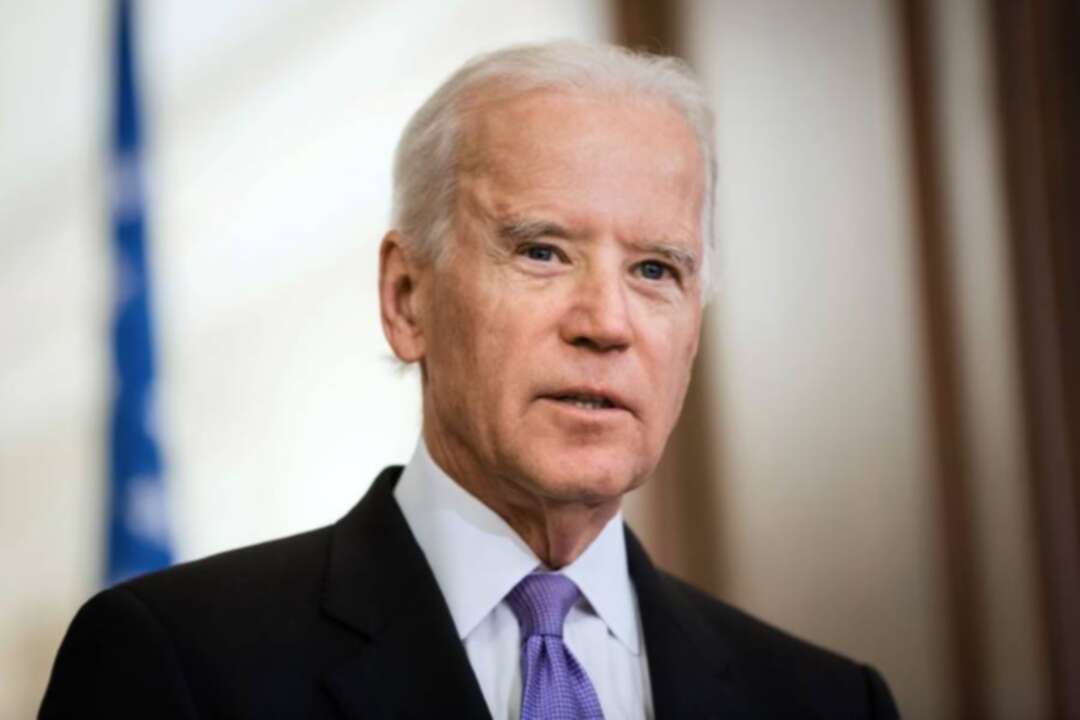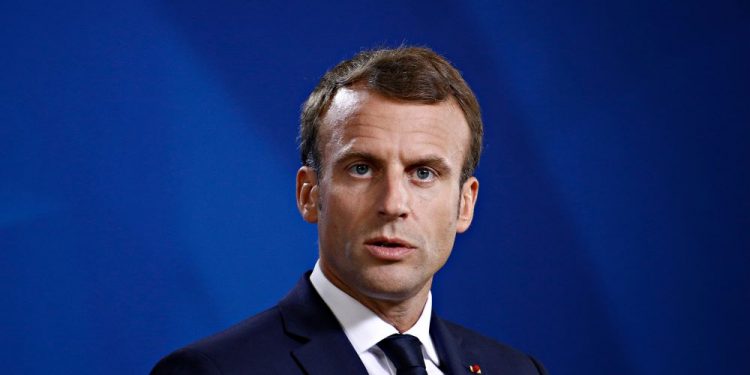-
Biden seeks to hold phone call with Macron over submarine deal tension

The Xinhua reported, U.S. officials said on Monday, U.S. President Joe Biden is seeking to hold a phone call with his French counterpart Emmanuel Macron in an effort to reduce tensions caused by a controversial submarine deal.
The Xinhua said, a diplomatic rift emerged between Washington and Paris over the announcement that the United States and Britain will support Australia to develop nuclear-powered submarines, depriving France of a contract to provide conventional submarines to Australia.
Outraged by the abrupt move without notice, France recalled its ambassadors to the United States and Australia for consultations on Friday.
"President Biden has asked to be able to speak with President Macron to talk about the way forward, to talk about his deep commitment to the U.S. alliance with France," a senior Biden administration official told reporters in a call briefing on Monday.

The official: "We understand the French position, we don't share their view in terms of how this all developed."
He added: "We think that will be an important moment and opportunity for the two leaders to speak directly with one another."
Read more: Boris Johnson and António Guterres to address world leaders on climate change
White House Press Secretary Jen Psaki told reporters in a briefing later Monday that the call would take place "in the coming days," while noting officials are still working on scheduling it.
Under the new security partnership unveiled on Wednesday between Australia, Britain, and the United States, known as AUKUS, Australia will build nuclear-powered submarines with U.S. and British technology.
On Thursday, Australia announced it would scrap the deal with France signed in 2016 to purchase 12 conventional diesel-electric submarines.
Read more: What is the best policy in controlling the Iranian regime’s nuclear ambitions?
French Minister for Europe and Foreign Affairs Jean-Yves Le Drian on Thursday called the trilateral move a "stab in the back." "We had established a relationship of trust with Australia. This trust has been betrayed," he said.
He added: "The American behavior worries me; this unilateral and brutal decision is very similar to what Mr. (Donald) Trump was doing."
Source: xinhua
You May Also Like
Popular Posts
Caricature
BENEFIT Sponsors BuildHer...
- April 23, 2025
BENEFIT, the Kingdom’s innovator and leading company in Fintech and electronic financial transactions service, has sponsored the BuildHer CityHack 2025 Hackathon, a two-day event spearheaded by the College of Engineering and Technology at the Royal University for Women (RUW).
Aimed at secondary school students, the event brought together a distinguished group of academic professionals and technology experts to mentor and inspire young participants.
More than 100 high school students from across the Kingdom of Bahrain took part in the hackathon, which featured an intensive programme of training workshops and hands-on sessions. These activities were tailored to enhance participants’ critical thinking, collaborative problem-solving, and team-building capabilities, while also encouraging the development of practical and sustainable solutions to contemporary challenges using modern technological tools.
BENEFIT’s Chief Executive Mr. Abdulwahed AlJanahi, commented: “Our support for this educational hackathon reflects our long-term strategic vision to nurture the talents of emerging national youth and empower the next generation of accomplished female leaders in technology. By fostering creativity and innovation, we aim to contribute meaningfully to Bahrain’s comprehensive development goals and align with the aspirations outlined in the Kingdom’s Vision 2030—an ambition in which BENEFIT plays a central role.”
Professor Riyadh Yousif Hamzah, President of the Royal University for Women, commented: “This initiative reflects our commitment to advancing women in STEM fields. We're cultivating a generation of creative, solution-driven female leaders who will drive national development. Our partnership with BENEFIT exemplifies the powerful synergy between academia and private sector in supporting educational innovation.”
Hanan Abdulla Hasan, Senior Manager, PR & Communication at BENEFIT, said: “We are honoured to collaborate with RUW in supporting this remarkable technology-focused event. It highlights our commitment to social responsibility, and our ongoing efforts to enhance the digital and innovation capabilities of young Bahraini women and foster their ability to harness technological tools in the service of a smarter, more sustainable future.”
For his part, Dr. Humam ElAgha, Acting Dean of the College of Engineering and Technology at the University, said: “BuildHer CityHack 2025 embodies our hands-on approach to education. By tackling real-world problems through creative thinking and sustainable solutions, we're preparing women to thrive in the knowledge economy – a cornerstone of the University's vision.”
opinion
Report
ads
Newsletter
Subscribe to our mailing list to get the new updates!






















